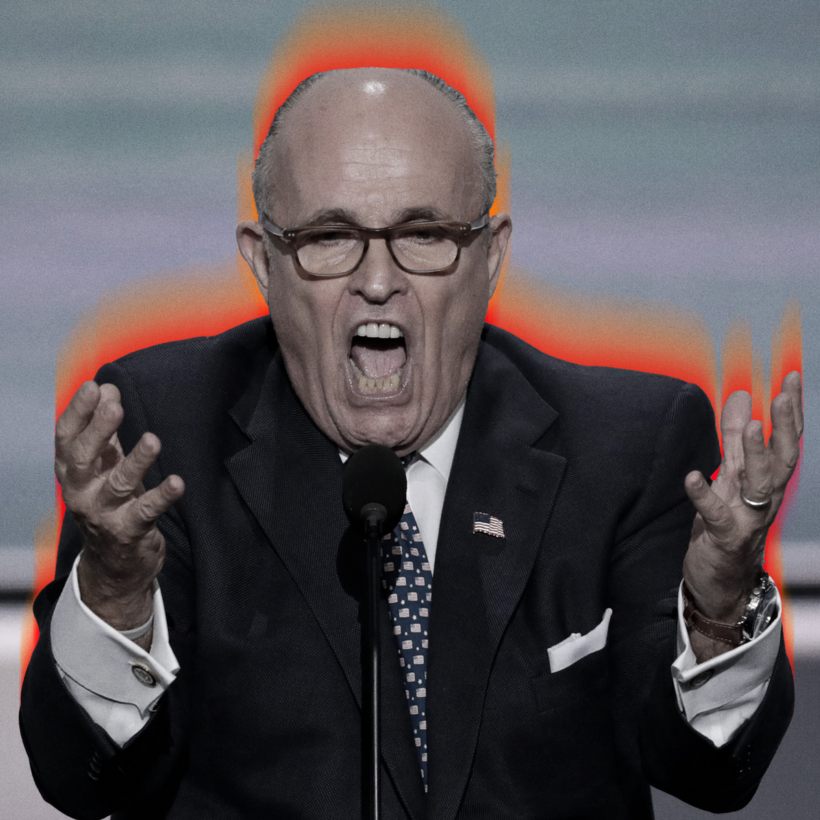What the hell happened to Rudy Giuliani? It’s a question much of America was asking in the winter of 2020 while watching the former mayor of New York debase himself in the service of Donald Trump’s attempt to overturn a presidential election. As he made ever more outlandish claims about electoral fraud, brown hair dye running down his sweaty cheeks, his flatulence so clamorous it became a meme, he was unrecognizable from the once heroic symbol of Manhattan’s endurance after 9/11.
Giuliani went from being given an honorary knighthood by Queen Elizabeth II in 2002 to holding an unhinged press conference next to a sex shop in 2020. From Time magazine’s Person of the Year to selling happy birthday messages for $400 on the Cameo app, “America’s mayor” had become Trump’s poodle.

